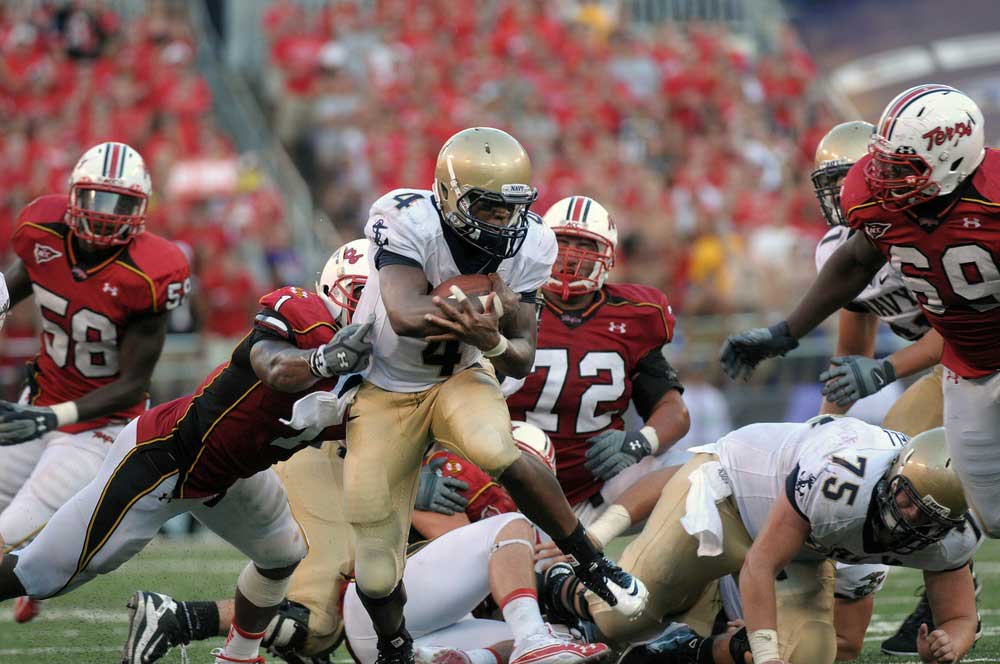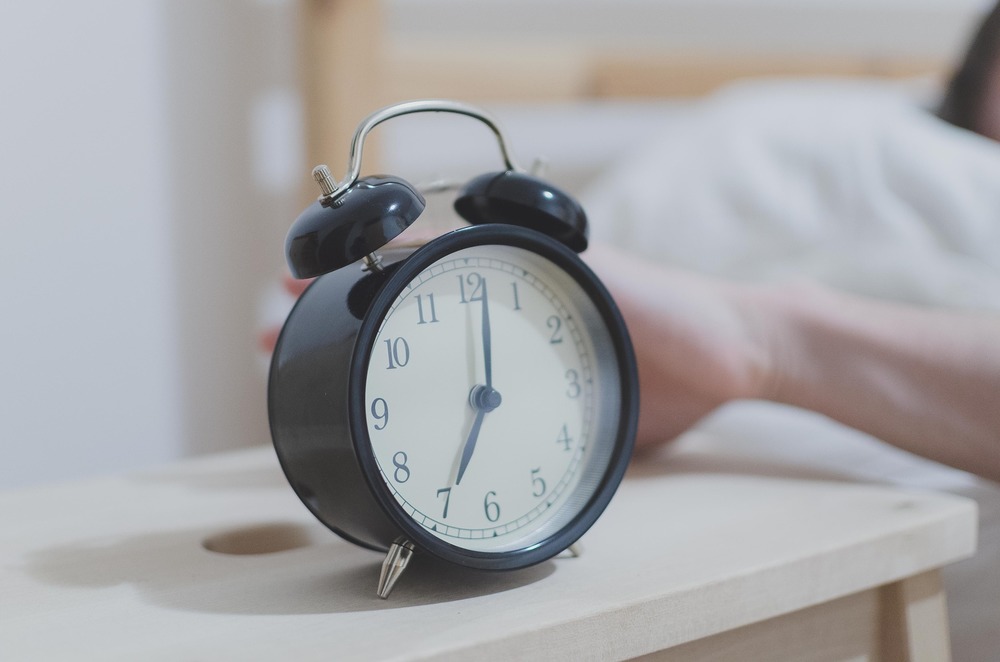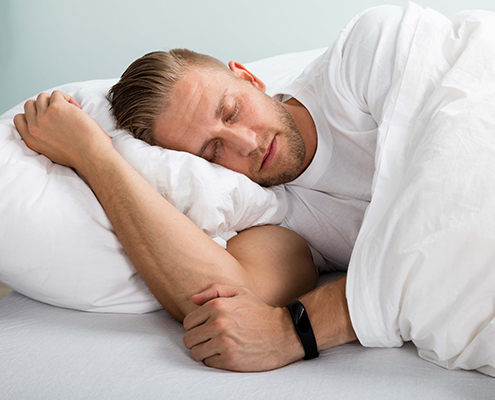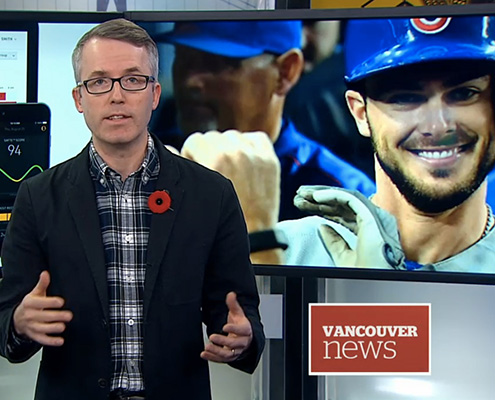Sleep strategies for college and pro athletes during days off

It’s not easy to wind down from a normal work week, let alone one that means playing D on LeBron James or taking a hits from Von Miller. And while rest and relaxation may be in order for recovering athletes on days off, not all strategies are equal when it comes to R&R. Managing those days off can be just as important as managing training and game days when it comes to optimal performance.
Athletes, in both collegiate and pro sports, are likely thinking more about soaking up the limelight at late night pool parties than about effective sleep strategies on days off. However, good times and good sleep don’t have to be separated entirely for elite athletes. Being prepared to deal with down time, especially maintaining sleep habits, can separate the good from the great when it’s time to perform again.
Understanding how to deal with sleep during days off is not simple. Just because a player spends all day in bed, for example, doesn’t mean they’ll wind up well rested. And equally, because they spend some time out after dark, doesn’t mean they can’t be at peak come game time. But what you can’t measure, you can’t manage and monitoring sleep patterns can be tough to do accurately.
Here are some things to think about when measuring and managing sleep during downtime in elite athletes:
Keeping the rhythm

It’s called circadian rhythm for a reason. Like everything, including nutrition and training, sleep has to be done with rhythm in mind to be as effective as possible, even after a big night out to celebrate. All humans are synchronised to rhythmic light-dark changes that occur on a daily basis. Developing a consistent bedtime and wake-up schedule promotes a stable circadian rhythm. Like breathing, it’s most effective when controlled.
In healthy individuals, physiological and biochemical variables such as body temperature, cortisol, melatonin, thyroid stimulating hormone (TSH), noradrenaline and serotonin show signs of circadian rhythm. Perhaps most important for performance athletes is that disrupting circadian rhythm can inhibit natural Testosterone and Human Growth Hormone production. Trying to maintain a natural circadian rhythm as best as possible, no matter what the downtime distractions, is always going to be important for performance athletes. Finding ways to get back into rhythm, even if a beat or two is missed, is crucial.
Managing social jet lag

Let’s face it, players are going to play. Successful athletes at every level are going to go out and let off steam during downtime. Being prepared to deal with that, particularly the impacts of disturbed sleep routines, can prevent short-term impacts and develop next-level performance habits for athletes.
In its simplest terms, ‘social jet lag’ usually occurs when an athlete’s internal clock doesn’t match up with their daily schedule. ‘Chronotypes’ are tied closely to circadian rhythm and represent the time of day an individual is most likely to rest and sleep. Some people are larks (early to rise, early to bed) and others are owls (up late, out late). Both have positive and negative aspects when it comes to performance. However, it’s increasingly true that humans are pushing activity outside their natural circadian clock, which can be very problematic for performance. Sleep-time differences of more than one hour between training days and days off in elite athletes is considered a sign of social jet lag.
Some of the best athletes have some of the greatest potential for social jet lag, during downtime in particular. But the best learn to manage and measure all the aspects of their lives, including sleep. Younger and less developed players need to be encouraged and armed with tactics for building strong sleep habits early on. College athletes are at a more sensitive stage of both physical and cognitive development and sleep can severely impact both in the short and long term.
Professionals, on the other hand, will be more capable of managing their preferred routines and lifestyles, which are also likely to range more widely than in college athletes. Pros will know what works best for them but should be open to looking for improvement wherever it can be found, including managing sleep. Pros will also be more prone to the pressures of parenting, business and celebrity, all of which can lead to different sleep-wake patterns and a lag in sleep time. By monitoring sleep effectively, and finding ways to make up for sleep disruptions, these athletes also stand the most to gain from even the smallest performance advantage.
Timing is everything
Don’t stay in bed all day. Excessively long times in bed are related to fragmented and shallow sleep. Laying in bed all day, trying to recover for example, can do more harm than good and represents among the most important factors in perpetuating insomnia.
Keep naps short and sweet. Brief naps (5-30 mins) are a great, whether it’s to recover from sleep loss or to relax the mind. However, longer naps (more than 30 mins) are associated with a loss of sleep productivity, which can lead to higher levels of grogginess and fatigue. For maximum recovery and effectiveness, including the natural production of testosterone and HGH, it’s important for athletes to carefully manage the amount of time they nap.
Know when to rest. The amount of slow-wave sleep is greater with a nap taken closer to the afternoon circadian dip in alertness (typically between 1:00-3:00 pm) than with a nap taken during the morning or evening ‘forbidden zone’ for sleep (around 8:00–10:00 pm). Slow wave sleep is the most restorative and typically occurs in the deepest stages of sleep. A well timed nap can result in sleep efficiency, which helps restore cognitive alertness and reduce fatigue.
No place like home
Sleeping in a strange bed, subject to different sights, sounds and light levels can have a serious impact on sleep quality. Trying to simulate regular sleeping arrangements, whether out for the night or on a vacation during downtime is important. This can be done by bringing familiar items along for the ride; a sleeping mask, earplugs, pillow and mattress types, or booking into a favourite, comfortable hotel. Additionally, keeping a consistent room temperature and humidity can often be controlled and help maintain a sense of familiarity and comfort.
Seize the day
Chronic partial sleep loss is the most important cause of the urge for daytime sleep. On down days, players may be tempted to stay on the couch, exposed to indoor lighting rather than maintaining active behavior. And if they only spend 10 hours out of bed, for example, that will not provide enough natural sleep deprivation to promote the urge to sleep, which can substantially alter established routines. No matter how hard it might seem after a late night out and shortened sleep, for example, players should engage in light physical activities during the day (e.g., walking/ cycling). They also need to be exposed to natural morning light in order to promote restorative nighttime sleep without inducing extra fatigue.
Regularly scheduled, well structure rest time, even during days off, can help athletes at every level catch up without cutting out social time and celebration. Creating awareness around social jet lag, accounting for differences in chronotypes, knowing when and how to nap and generally helping athletes adjust, without being a buzz kill, will mitigate performance disruptions come game time. Being able to effectively monitor, measure and manage sleep is one of the only real ways to do this accurately and represents a critical performance edge for elite athletes.
Interested in learning more about data-driven fatigue management?
For for a comprehensive overview of the scientific link between sleep and athletic performance, download our free Science of Sleep eBook.
About Fatigue Science
Fatigue Science uses a wrist-worn wearable technology device to help measure sleep 93% as accurate as polysomnography, the gold standard in sleep monitoring. This scientifically validated system is proving particularly advantageous to elite sports programs ranging from the Oakland Raiders to the Alabama Crimson Tide. This includes aiding in planning sleep strategies for athletes to employ during days off.
Further reading
Sleep and Recovery in Team Sport
Sports Science Exchange: Sleep and the Elite Athlete
How the Science of Sleep is Transforming the NFL
How to Perfect Your Sleep Cycle
Learn more about effectively monitoring and measuring sleep for high performance athletes.


